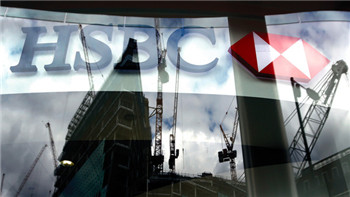(单词翻译:单击)

There are many reasons HSBC decided to keep its headquarters in London and most of them have to do with the evolving circumstances in China. Much has changed there since the bank announced it was reviewing whether to return to its roots in China and Hong Kong.
汇丰(HSBC)决定把总部留在伦敦的原因很多,其中多数原因必然涉及中国变化中的现实。自该行宣布正在审议是否重返其植根于的中国内地和香港以来,很多事情发生了变化。
For a start, the regulatory risk has soared as local and foreign investors have lost their faith in the government and regulators’ ability to manage the markets and the currency. That matters to HSBC because if it had shifted back to Hong Kong, the People’s Bank of China would have been in effect its regulator and certainly its lender of last resort.
首先,监管风险已经飙升,本土和外国投资者对中国政府和监管机构管理好市场和人民币汇率的能力失去了信心。这对汇丰很重要,因为如果该行迁回香港,中国人民银行(PBoC)实际上将是它的监管机构,同时必定是它的最后贷款人。
For the past two decades, as China’s manufacturing and its export machine prospered, it made sense for HSBC to think the mainland would contribute to an ever rising share of its profits. No bank was in a better position to mediate those flows and finance that trade.
过去20年期间,随着中国制造业和出口机器蒸蒸日上,汇丰有理由认为中国内地将为其贡献越来越高的盈利份额。在处理交易和提供贸易融资方面,没有一家银行处于比它更为有利的地位。
At the same time HSBC sought to maximise its options by taking stakes in a variety of Chinese financial institutions. These included a 20 per cent stake in Bank of Communications, and smaller stakes in insurer Ping An, which has its headquarters across the border in booming Shenzhen, and Bank of Shanghai. HSBC’s chief executive Stuart Gulliver — whose heart is in Hong Kong even as his head remains in London — spoke of opening 800 branches across China if he was not able to acquire a much bigger stake in BoCom.
与此同时,汇丰寻求通过入股中国的各类金融机构,最大化自己的选项。这些交易包括收购交通银行(BoCom) 20%股份,以及保险公司中国平安(Ping An)和上海银行(Bank of Shanghai)的较小股份;平安的总部位于毗邻香港的繁华城市深圳。汇丰首席执行官欧智华(Stuart Gulliver)对香港情有独钟,即便理智要求他扎根伦敦。他曾谈到,即使无法购得交行的更大股份,汇丰也将在中国各地开设800家网点。
Now though, the opportunity seems both smaller and less seductive. Growth is slowing, albeit off a huge base. The sources of growth are also changing; in future China will be more domestically driven. There will be less business for a foreign bank — and Beijing will always regard HSBC as a foreign bank.
但现在,中国的机遇看上去更小,也不再那么诱人。增长正在放缓——尽管是从较高的基数。增长的来源也在发生变化;未来中国经济将在更大程度上由国内驱动。外资银行的业务将会更少,而北京方面将永远把汇丰视为一家外资银行。
Moreover, this is no time to be aggressively expanding in China. Mr Gulliver is an astute risk manager, who was running Asian markets during the Asian financial crisis from Hong Kong. For more than two years he has been bracing for a slowdown in China, reducing his counterparty risk with smaller financial institutions and dealing only with the most blue-chip borrowers. Although the announcement of the decision to stay in London spoke of the “particular emphasis” HSBC is putting on investing further in the Pearl River Delta”, it neglected to say that most of that is in financing HSBC’s Hong Kong corporate clients as they go across the border.
此外,现在不是在中国大举扩张的合适时机。欧智华是一个精明的风险管理者;当年亚洲金融危机期间,他曾坐镇香港,操盘亚洲各地市场。最近两年多来,他一直在为中国增长放缓做准备,降低对较小金融机构的交易对手风险,并且只与最可靠的蓝筹股借款人打交道。虽然汇丰在宣布决定留在伦敦的声明中谈到“特别注重”在珠三角进一步投资,但该行没有说的是,这些投资大部分将是为汇丰的香港企业客户提供融资,帮助他们在珠三角做生意。
Both Mr Gulliver and his board recognise that this is a moment that calls for greater caution. No wonder the vote in favour of London was unanimous.
欧智华和汇丰董事会都认识到,现在是需要更加谨慎的时刻。难怪他们一致支持留在伦敦。


